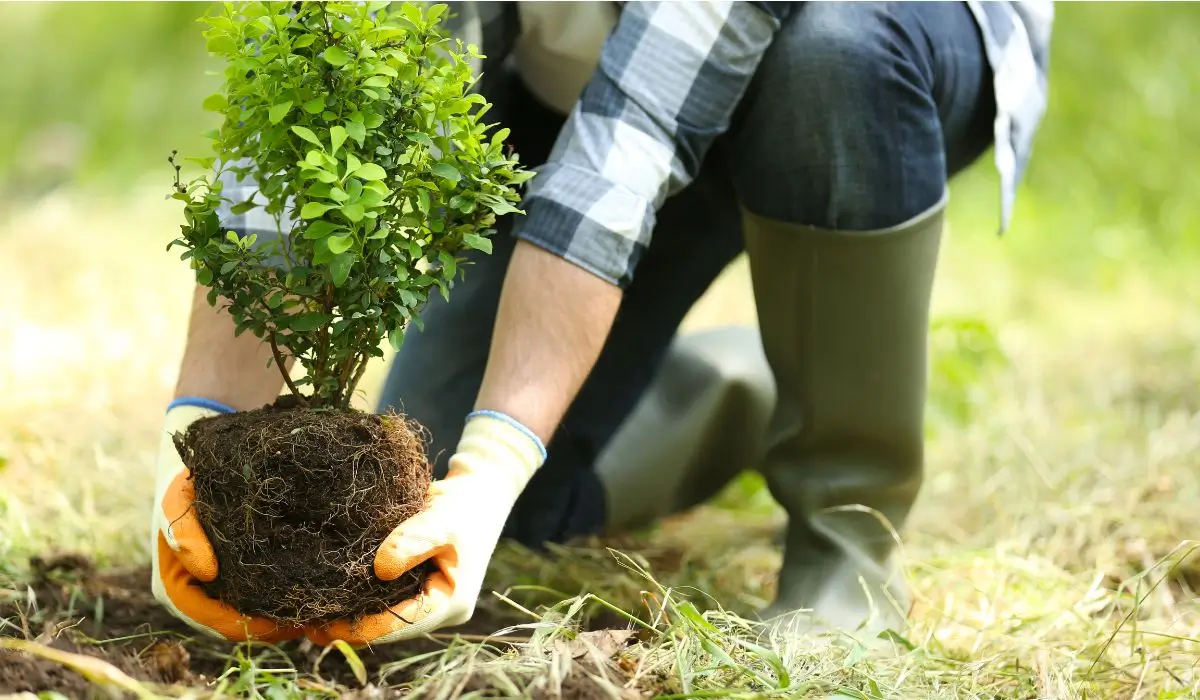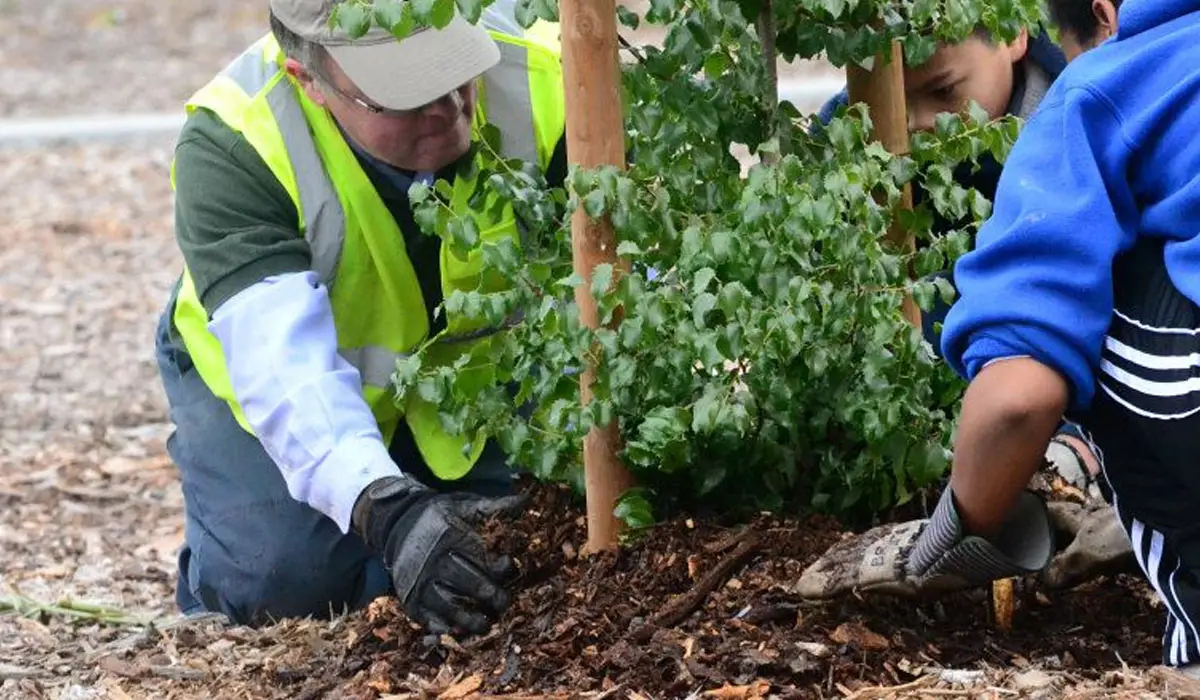
Why Summer Is the Perfect Time to Plan for Fall Tree Planting
Plan Ahead for Fall Tree Planting With Expert Summer Preparation Tips
Tree planting might happen in the fall, but successful results begin in summer. Planning ahead gives your new trees the best shot at thriving—not just surviving. White Oak Tree Care Inc. supports homeowners by guiding every step of the process—from early site prep to final installation.
Every year, we see homeowners rushing to plant in late September, only to face limited tree availability, last-minute decisions, or improper site prep. These common issues can lead to root failure, transplant stress, or placement regrets down the line.
If you’re thinking about tree planting this fall, now’s the time to plan—with the right advice, timing, and techniques.
Why Fall Is Ideal for Tree Planting in Residential Yards?
Cool Weather Supports Root Growth
Root development is the most important factor in tree survival. Cooler temperatures in fall slow down the top growth of a tree, redirecting energy into root expansion underground. This is especially helpful for:
- Newly transplanted trees adjusting to new soil
- Species with sensitive root systems that need steady, moderate growth
- Homeowners who want to reduce watering frequency and transplant shock
Hardwood species like oaks, maples, and elms especially benefit from this window. When soil stays warm but air cools down, the biological processes supporting root cell growth are at their strongest.
Learn more about what it takes to maintain strong trees with our insights on essential tree care in Chicago.
Trees Establish Better Before Winter
Trees planted in fall get 6–8 weeks to form root connections before entering winter dormancy. Once spring hits, they emerge with a head start in anchoring, water absorption, and nutrient uptake.
By contrast, spring-planted trees face immediate heat stress and water competition. Starting in the fall avoids this and helps young ones resist pests and drought the following summer.
Why Planning Ahead in Summer Matters?
Gives Time for Site Evaluation and Soil Testing
Evaluating soil structure, drainage, and sun exposure in summer ensures that your future planting site won’t create hidden problems later.
What we often find during pre-planting site visits:
- Compacted clay soils that restrict oxygen flow to roots
- Shallow topsoil layers that dry out quickly
- Overhead utility lines or foundation proximity issues that limit species choice
Summer is also ideal for conducting pH and nutrient tests. Knowing your soil’s condition early means you can start amending it in time for fall planting, improving both survival rate and long-term growth.
Helps You Choose the Right Tree Species
Species selection is not just about appearance. Right tree, right place saves time, money, and maintenance later.
Trees differ significantly in their water needs, root growth direction, and resistance to diseases common in Illinois (like Dutch elm disease or anthracnose). By working with experts in tree selection services, you ensure:
- You’re not planting a fast-growing tree in a tight space
- You avoid species with weak wood near driveways or power lines
- You pick trees adapted to local pests and climate conditions
Native trees like bur oak or serviceberry often outperform exotic ornamentals in our region, offering better survival and less care over time.
Regular structural care makes a difference—read about the benefits of tree pruning in Naperville for stronger, longer-lasting trees.
Schedules Fill Fast—Beat the Rush
Reputable companies often fill their fall tree planting schedules weeks in advance. Last-minute calls may mean:
- Fewer high-quality trees available at nurseries
- Fewer appointment slots for planting
- Limited time to fix soil or drainage issues beforehand
Booking a landscape consultation in July or August guarantees you time to plan, prep your site properly, and choose from a wider selection of healthy, professionally sourced trees.
Common Mistakes in Tree Planting (and How to Avoid Them)
Wrong Tree, Wrong Place
It’s easy to fall in love with a beautiful species at the nursery—until it starts growing into overhead wires or cracking your driveway. One of the most common homeowner mistakes is failing to consider the mature size of a tree before planting it too close to:
- Homes or garages
- Sewer lines
- Sidewalks or fences
- Pools and patios
Roots can stretch 2–3 times farther than the canopy. Planning ahead reduces future pruning costs, structural issues, and the risk of removal down the road.
Poor Planting Technique
Even a healthy tree can fail if it’s planted incorrectly. Issues we routinely correct from prior DIY or inexperienced work include:
- Root flares buried too deep, suffocating the trunk base
- Girdled roots left unaddressed, eventually choking the tree
- Poorly loosened planting holes that don’t support root spread
- Overuse of fertilizer or mulch that traps moisture at the bark
The solution? Partnering with professionals who provide arborist planting advice from day one and follow ANSI A300 planting standards, ensuring each tree has a solid foundation.

Don’t wait for the best trees and planting dates to disappear. Contact us now for trusted advice and a smooth path to a healthier yard. The earlier you plan, the better your results.
How White Oak Tree Care Helps You Plan and Plant Right?
Personalized Tree Selection and Sourcing
Every yard has its own ecosystem. That’s why White Oak Tree Care Inc. guides homeowners through tree selection services based on actual soil profiles, sun angles, drainage conditions, and neighborhood constraints.
Whether you’re planting for shade, color, privacy, or wildlife attraction, our master arborist ensures that the tree fits your goals and your environment.
With direct access to local growers, we help you avoid big-box nursery stock that may be root-bound or over-fertilized. Healthier trees mean lower long-term costs.
Professional Planting That Supports Long-Term Health
Our team doesn’t just drop a tree in a hole. We manage every aspect of tree planting:
- Correct root pruning before planting
- Soil conditioning specific to your yard
- Proper alignment and staking when needed
- Mulch application to support moisture and reduce competition
Everything we do focuses on root health, spacing, and future resilience.
Ongoing Care Plans for Young Trees
We understand that the first 18–24 months after planting are the most vulnerable. That’s why our tree care planning services extend beyond planting day.
We provide:
- Seasonal inspections for insect or disease threats
- Customized watering schedules based on weather trends
- Fertilization and soil amendment strategies
- Structural pruning to prevent future damage
Our care plans are ideal for busy homeowners who want trees to succeed but don’t have time to monitor every detail.
Plan Ahead Now for a Stronger, Healthier Tree This Fall
Fall is tree planting season—but smart planning starts in summer. Waiting until the last minute often means limited options, rushed decisions, and higher chances of early tree failure. By starting now, you give yourself time to choose the right one, prepare your soil, and book expert help before schedules fill up.
